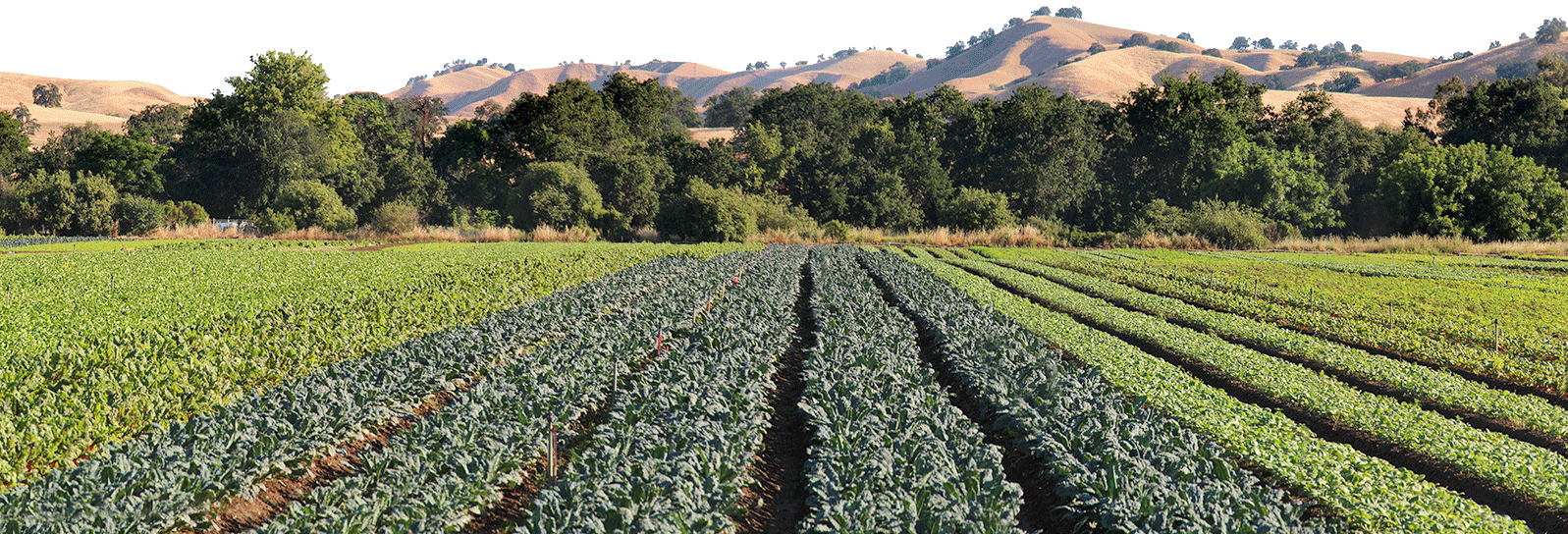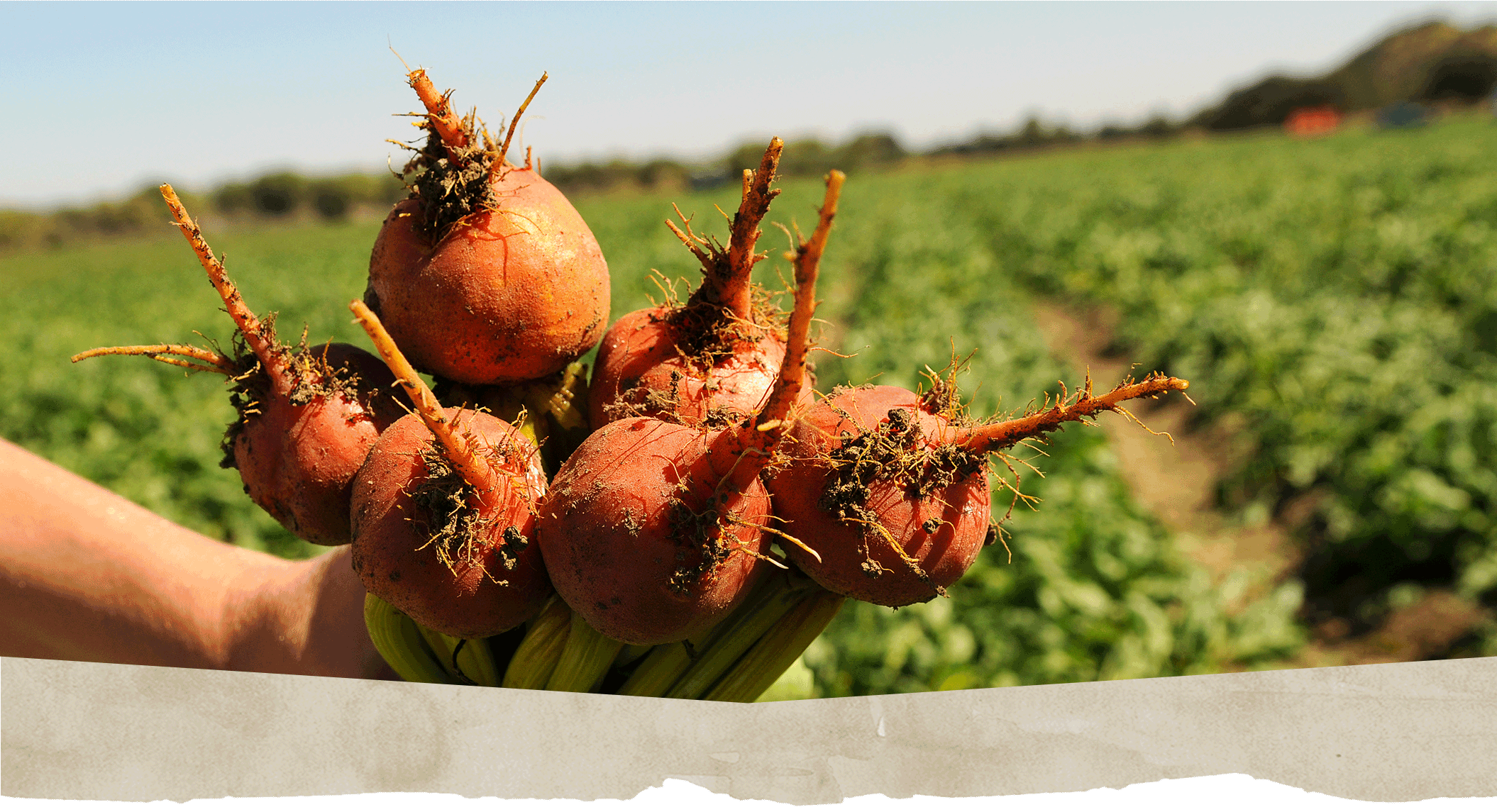
Our Commitment Organic & Sustainable
to Our Roots

"Beyond Organic"
a revolutionary philosophy & our continued commitment

The farm our parents started in the 1970s was part of an early movement of people who wanted to see food grown in a different way. They cared about improving more natural farming methods, providing a healthy work environment, promoting biodiversity and growing varieties of crops that tasted better while operating an environmentally and economically sustainable farming system.
Today, at our second-generation family farm, Capay Organic, we keep with our parents’ vision by practicing healthy crop rotation, encouraging a diverse ecosystem around the fields, caring for our family of employees, efficiently using local water sources and carefully selecting produce varieties that grow well and taste great.
Today's organic standard does not certify for all these items, but we are steadfast in keeping our farming practices true to our parents' vision for a better food system. It's what we call "beyond organic."
Certified Organic by CCOF
We are proud to have the client code of Yo02 (Yolo 2).
the second organic farm ever certified
in Yolo County by CCOF.
ABOUT OUR FOOD SAFETY PROGRAMS
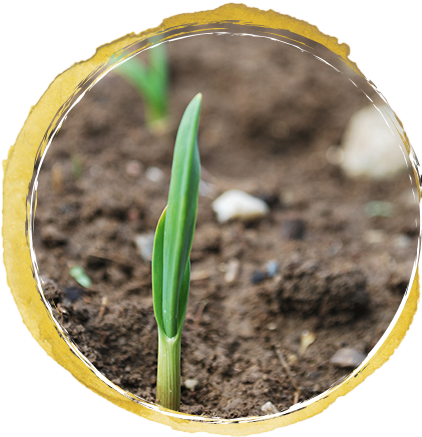
Our Capay Organic food safety program is a fully integrated system that directly controls every aspect of our farming operation — from seed to shipping — from office to marketing. As food safety is our utmost priority, we have both in-house and third-party experts working regularly to monitor, analyze and calibrate our procedures and train all departments and team members.
We are proud to be certified and audited to Primus GFS standard through the Global Food Safety Initiative (GFSI), a collaboration between the world's leading food safety experts from retailer, manufacturer and food service companies. Their mission is to provide continuous improvement in food safety management systems to ensure confidence in the delivery of safe food to consumers.
For inquiries regarding our food safety program, please email us at:
foodsafety@capayorganic.comsix core components that
Define Sustainable Farming

The best and most sustainable farms and food systems are the ones that focus on both economic and environmental sustainability. By going “beyond organic” and comitting to sustainability, these are the food systems that will nurture the unborn generations from whom we are borrowing these resources. Note: many of the following components are not required for organic certification.

Local
Fertilizers
Cover crops are the most sustainable fertilizer— period. They are the cornerstone of our fertilization program. After a healthy cover crop, the most local, organic fertilizers should be considered next, which depend entirely on a farm's location. For some farms, they are green waste compost; for others, it is a composted chicken or steer manure. Behind these are very specific fertilizers that are produced regionally (feather meal, fish and seaweed products).
Note: the most un-sustainable, but organic fertilizers are bat guano and sodium bicarbonate mined from unique spots on earth and shipped from different hemispheres (our farm does not use these products).
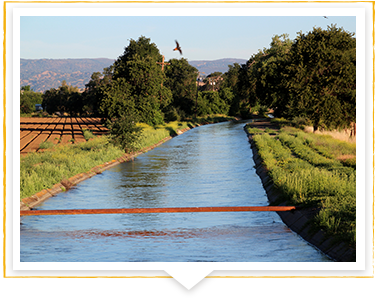
Irrigation & Water
Management
In order to maximize the use of fertilizers, land, and equipment use, a plant must have as much water as it wants. This is most sustainably done by using irrigation systems that have excellent distribution uniformity (drip, micro-sprinklers and hand move sprinklers). Additionally, these systems must be operated on an irrigation schedule that matches plant water-use requirements while taking into account factors like weather and development stage of the crop.
Applying too much water to a crop not only wastes water, but washes valuable nutrients out of the plant’s root zone, while applying too little water cripples a plant's ability to make the best use of the natural resources it has been given.
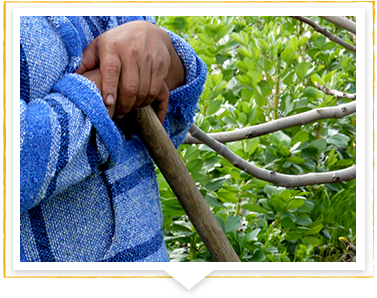
Year-Round
Employees
Farm employees are an essential and often overlooked component of a sustainable food system. These men and women are the backbone of the farming industry who work extremely hard and earn surprisingly small wages.
It is essential that this group of people have year-round work so they can sustain their families and their communities. Many farms manage only one crop which requires a large influx of labor for a concentrated period of time and then an expectation that the labor force will figure something out for the rest of the season.
By managing many different crops and focusing on creating year-round work, our farm is able to provide sustainable jobs to most of our farm team.
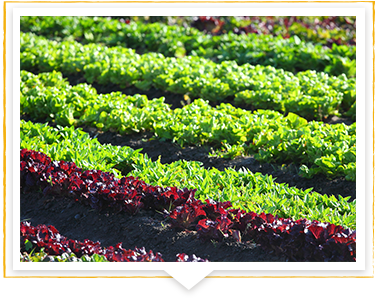
Crop
Rotation
The most sustainable form of preventing plant disease is to rotate different types of crops through the same field. Soil that receives the same crops year-after-year can breed diseases that harm that crop by building up levels in soil that may permanently eliminate the soil’s ability to grow certain crops without toxic chemicals (which are not organic nor healthy for anything). Crop rotation also helps promote biodiversity on farms and maintain year-round employment for the farm team.

Biodiversity
Farms manage land and resources that used to be the home to an untold variety and amount of wildlife. As stewards of both the land and the natural resources that go along with the land, we believe that sustainability includes promoting an ecosystem in which healthy crops, flora and fauna exist in a balanced eco-system.
On our farm, we set aside areas as wild and cultivated to California natives. We also preserve space between fields to create habitat for beneficial insects. Our farm's systems and operating procedures are customized to meet rigorous third-party Food Safety standards, but also protect the habitat that so many creatures depend upon.
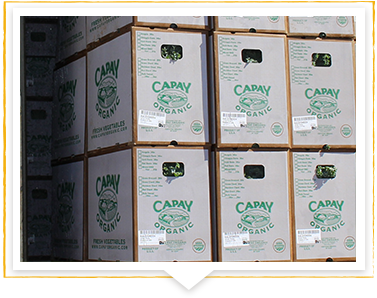
Customer
Satisfaction
Perhaps the most critical factor in a farm's sustainability is the ability for a farm to sell its product. After over 40 years of selling organic produce, we're proud of our high level of customer satisfaction and continued partnerships with retailers and customers. We build our customer satisfaction on 6 core components: food safety, quality, transparency, accountability, innovation and excellence.
